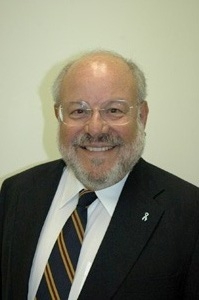But this is prevented by INPO, "created and solely funded by the nuclear industry," thus its reports "are not covered by the U.S. Freedom of Information Act and are regarded as highly secretive." The reports should be required to be made public, said the engineer. "It's high time the country wakes up to the dangers we undergo with nuclear power plants."
THE NRC INSPECTION FARCE
The U.S. Nuclear Regulatory Commission (NRC) is supposed to be the federal agency that is the watchdog over nuclear power plants and it frequently boasts of how it has "two resident inspectors" at each nuclear power plant in the nation, he noted.
However, explained the engineer, "the NRC inspectors are not allowed to go into the plant on their own. They have to be escorted. There can be no surprise inspections. Indeed, the only inspections that can be made are those that come after the NRC inspectors "get permission from upper management at the plant."
The inspectors "have to contact upper management and say they want to inspect an area. The word is then passed down from management that inspectors are coming--so 'clean up' whatever is the situation is."
"The inspectors hands are tied," said the engineer.
THE 60- AND NOW 80-YEAR OPERATING DELUSION
When nuclear power plants were first designed decades ago, explained the engineer, the extent of their mechanical life was established at 40 years. The engineer is highly familiar with these calculations having worked for a leading manufacturer of nuclear plants, General Electric.
The components in nuclear plants, particularly their steel parts, "have an inherent working shelf life," said the engineer.
In determining the 40-year total operating time, the engineer said that calculated were elements that included the wear and tear of refueling cycles, emergency shutdowns and the "nuclear embrittlement from radioactivity that impacts on the nuclear reactor vessel itself including the head bolts and other related piping, and what the entire system can handle. Further, the reactor vessel is the one component in a nuclear plant that can never be replaced because it becomes so hot with radioactivity. If a reactor vessel cracks, there is no way of repairing it and any certainty of containment of radioactivity is not guaranteed."
Thus the U.S. government limited the operating licenses it issued for all nuclear power plants to 40 years. However, in recent times the NRC has "rubber-stamped license extensions" of an additional 20 years now to more than 85 of the nuclear plants in the country--permitting them to run for 60 years. Moreover, a push is now on, led by nuclear plant owners Exelon and Dominion, to have the NRC grant license extensions of 20 additional years--to let nuclear plants run for 80 years.
Exelon, the owner of the largest number of nuclear plants in the U.S., last year announced it would ask the NRC to extend the operating licenses of its two Peach Bottom plants in Pennsylvania to 80 years. Dominion declared earlier that it would seek NRC approval to run its two Surry nuclear power plants in Virginia for 80 years.
"That a nuclear plant can run for 60 years or 80 years is wishful thinking," said the engineer. "The industry has thrown out the window all the data developed about the lifetime of a nuclear plant. It would ignore the standards to benefit their wallets, for greed, with total disregard for the country's safety."
The engineer went on that since "Day One" of nuclear power, because of the danger of the technology, "they've been playing Russian roulette--putting one bullet in the chamber and hoping that it would not fire. By going to 60 years and now possibly to 80 years, "they're putting all the bullets in every chamber--and taking out only one and pulling the trigger."
Further, what the NRC has also been doing is not only letting nuclear plants operate longer but "uprating" them--allowing them to run "hotter and harder" to generate more electricity and ostensibly more profit. "Catastrophe is being invited," said the engineer.
(Note: You can view every article as one long page if you sign up as an Advocate Member, or higher).





